特惠-26考研冲刺
特惠-27考研课
双证-在职硕士
免联考-同等学力
复试分数线
26复试全面指导
模拟复试面试
26考研-全套真题
26考研估分
保研-路线图
27考研-智能择校
27考研-英语测评
27考研-新大纲对比
热门-计算机择校

扫码加入训练营
牢记核心词
学习得礼盒
2015考研英语复习正是强化复习阶段,考研英语阅读在考研英语中占了40分,所以考研英语阅读是英语科目中重要的一项。新东方名师范猛老师曾建议过考研生需要坚持每天泛读10-15分钟的英文原刊。强烈推荐了杂志《经济学人》.杂志中的文章也是考研英语的主要材料来源.希望考研考生认真阅读,快速提高考研英语阅读水平。
Asian business
亚洲商业
A world to conquer
征服世界
Asian business is reforming. Its emergingmultinationals will change the way we all live
亚洲商业正在改革,其新兴的跨国公司将改变我们的生活
BUSINESS power follows economic power. In the1920s British firms owned 40% of the global stock of foreign direct investment. By 1967America was top dog, with a 50% share. Behind those figures lie cultural revolutions. TheBritish spread the telegraph and trains in Latin America. American firms sold a vision of thegood life, honed by Hollywood and advertising. Kellogg's changed what the rich world ate forbreakfast, and Kodak how it remembered holidays. The next corporate revolution, as wedescribe in our special report this week, is happening in Asia. This too will change how theworld lives.
商业能力紧随经济实力。1920年代,英国公司拥有40%的全球海外直接投资股票。截至1967年,美国以50%的市场份额雄霸世界。这些数字的背后是文化革命。英国将电报机和铁路传至拉丁美洲。美国公司则通过好莱坞和广告营造了一副美好生活的憧憬。家乐氏公司改变了发达国家人们桌上的早餐,柯达则定格了人们对于假期的美好回忆。下一场公司革命,就如同我们在本周的特别报道中描述的一样,将发生在亚洲。这也同样会改变我们生活的世界。
Arrested development
发展受阻
Asian capitalism has brawn. The continent's share of global GDP has risen from a fifth to 28%since 1984. It is the world's factory, a diverse region of rivals bound together by supplychains. But it lacks brains and global savvy. Asia smelts 76% of the world's iron and emits44% of its pollution, but hosts only a tenth of its most valuable brands and venture-capitalactivity. Its multinationals punch below their weight, owning 17% of the world's foreigndirect investment. Wealthy Japan and South Korea have a cast of superstars, such as Toyotaand Samsung. But few other firms command the world stage.
亚洲资本强劲有力。亚洲大陆占全球GDP的份额自1984年以来已经增长了五分之一,至28%。 这里是世界工厂,由供应链连结起来的竞争多元化的地区。但是它“力大无脑”,缺乏对全球市场的领悟能力。亚洲熔炼了76%的世界钢铁并排放了44%的污染物,但是只掌握了十分之一最有价值的品牌和风险资本活动。这里,跨国公司的实力与其规模并不相称,只拥有世界17%的外国直接投资。富裕的日本和韩国有众多的明星企业,例如丰田和三星。但是,其他能够在世界舞台上占领一席之地的公司却是屈指可数。
That is because Asian capitalism has been too cosy. In the boom between 2002 and 2010easy profits were made at home—growth was fast and labour and credit cheap. Two-thirdsof big Asian firms are state-controlled or “business houses” (often family-run). Theseincumbents tend to be chummy with the government and get cheap land and loans. Half ofall billionaire wealth in Asia has been made in sectors, such as property, that are prone tocronyism, versus 15% in the West. Outside Japan, Taiwan and South Korea, innovation hasbeen neglected. Mahindra & Mahindra and Great Wall, car champions from India andChina, have a combined research-and-development (R&D) budget that is 3% ofVolkswagen's.
这是因为亚洲的资本主义是“温室里的花朵”。从2002到2010年,唾手可得的利润在家里就能轻松赚到——快速的增长以及廉价劳动力和信贷。三分之二的亚洲大公司都是国有的或者家族式经营的商号。它们都与政府有着密切的关系,能够得到廉价的土地和贷款。亚洲近半数的亿万富豪都是从政府有关部门发家的,例如极易产生裙带关系的房地产业,相比之下在西方只占15%。除了日本、台湾和南韩之外,创新都遭到了忽视。马恒达和长城这两个印度和中国的汽车业龙头,其研究开发经费加起来也不过是大众汽车的3%。
For Western firms, Asia's shortcomings have been a relief. The iPhone shows why: althoughit is made by the hands of Chinese workers, it is the brains behind it, at Apple and athigh-tech component-makers in the rich world, that take nearly all the profits. Now,however, the rules that have governed Asian capitalism for the past two decades arechanging. Asian firms are having to become brainier, more nimble and more global.
对于西方公司来说,亚洲的短板令他们从中得利。iPhone就是和很好的例子:尽管都是出自中国工人的双手,但从中赚取几乎全部利润的“大脑”,是背后的苹果公司和发达国家的高科技元件市场。然而,这个曾经在过去二十年里管理着亚洲资本的游戏规则正在改变。亚洲企业正在变成更为灵活和全球化的“大脑”。
The immediate motivation is underperformance: growth has slowed, and Asian shares havelagged American ones by 40% in the past three years. Three deeper trends are also at work.First, labour costs are rising, not least in China, and East Asia's workforce is ageing. Second,Asia's middle class is becoming more demanding. They are no longer satisfied with fakeLouis Vuitton handbags; they want clean air, safe food and more leisure, and are madly inlove with the internet. Third, competition has intensified from Western multinationals, whichhave invested $2 trillion in Asia. They also now use the same cheapish labour, and theygenerally have much more sophisticated supply chains, brands and R&D.
最直接的动力是表现不佳:增长在减缓,在过去的3年里,亚洲的份额滞后于美国40%。三个更深层次的趋势正在起作用。首先,劳动力成本在上升,尤其是在中国,东亚的劳动力正在面临老龄化。其次,亚洲中产阶级的需求正在变高。他们不再仅仅满足于山寨LV手包,他们想要干净的空气、安全的食品和更多的休闲娱乐,同时也越来越迷恋网络世界。第三,来自西方跨国公司的竞争愈发激烈,他们已经在亚洲投资超过2万亿美元。他们现在也有相对廉价的劳动力,除此之外他们大都还拥有成熟的供应链、品牌和研发。
With their home markets no longer quite so safe, Asian firms are adapting—and becomingstronger. In response to rising wages, production (of clothes, for example) is shifting fromChina to South-East Asia and Africa, led by Japanese firms which are also worried about a warwith the Middle Kingdom. Chinese firms such as Haier, which makes fridges, plan to automatefactories and get into cleverer products. And as the Chinese push upmarket, the Koreans areredoubling efforts to stay ahead. Samsung's spending on R&D rose by 24% in 2013. Ifthey get their act together, India and Indonesia, Asia's bumbling giants, will attract lots offactory jobs. Their best firms are also getting brainier. Once dismissed as “body shops”,India's IT-outsourcing firms are now leaders in big data.
亚洲企业的本土市场不再是高枕无忧,所以他们也在适应——同时也在变强。由于上升的工资成本,产品生产(例如服装)正在从中国转到东南亚和非洲,日本公司由于担心与中国将爆发战争所以首先采取了这种措施。中国公司例如生产冰箱的海尔,计划加强工厂自动化并生产更智能的产品。随着中国高端市场的发展,韩国正竭力保持其领先地位。三星在2013年的研发经费增长了24%。如果印度和印尼能共同进退,这两个笨手笨脚的亚洲巨人将会吸引大量的工厂就业。他们中最好的公司也正变成“大脑”。曾经被忽略为代工车间的印度IT外包公司现在已经成为大数据的领军者。
Rising consumer aspirations are helping internet firms disrupt traditional industries.Alibaba, a Chinese internet giant, is expanding into banking, telecoms and logistics.Analysts think it might be worth $150 billion, more than China's steel industry. China's driveto reform its state-owned firms is meant to make them more responsive to customers. XiGuohua, the boss of China Mobile, plans to give shares to his staff. Across Asia demand forhealth care is likely to create a whole new generation of companies—the industry comprisesonly 4% of the region's stockmarket, compared with 12% in the rich world.
消费者日益增长的需求意愿正帮助互联网企业打破行业传统。阿里巴巴作为一个中国互联网企业巨头,已经将业务扩张到银行业、电信业和物流业。分析师认为其市值可能达到1500亿美元,超过了中国钢铁行业总和。中国实施国企改革的决心意味着国企要更多的回应消费者的需求。中国移动董事长奚国华计划让自己的员工持有本企业的股份。纵观亚洲,对于医疗保健的需求很有可能会创造一批全新的公司——该行业的份额只占地区股票市场的4%,而在发达国家则占12%。
In order to challenge foreign rivals, Asian firms are globalising, following the example ofSamsung and Toyota. Lenovo, a thriving Chinese computer firm, has Western-stylegovernance and many foreign staff. Huawei has overtaken Ericsson in telecoms equipment.India's Sun Pharma is now one of the world's biggest generic-drugs firms. Tencent, China'sFacebook, has hired the footballer Lionel Messi to advertise its services abroad. Sprawlingbusiness houses are evolving into focused multinationals. Tata Sons is now a superb IT firmand luxury-car maker tied to a ragbag of Indian assets.
为了应对国外竞争对手,亚洲公司(例如三星和丰田)正在全球化。作为一家繁荣兴旺的中国计算机企业,联想拥有西式的管理和众多外籍员工。华为在电信设备方面也超越了爱立信公司。印度的太阳药业现在已经跻身为全球最大的非注册商标类药品公司之一。腾讯是中国版的facebook,聘任足球明星莱昂内尔·梅西为其服务进行海外宣传。粗放式发展的商业模式已经进化成集中而专业的跨国企业。塔塔之子公司这家优秀的IT公司和豪华汽车制造商,已经成为印度资产大杂烩中的一员。
【英语阅读资料】这里有↑↑↑

 资料下载
资料下载
2014年-2025年考研历年真题汇总
发布时间:2024-04-25扫码添加【考研班主任】
即可领取资料包
考研大纲PDF电子版下载-历年(附解析)
发布时间:2024-04-25扫码添加【考研班主任】
即可领取资料包
2026年考研政数英备考资料zip压缩包
发布时间:2024-04-25扫码添加【考研班主任】
即可领取资料包
考研英语大纲词汇5500打印版(基础必备)
发布时间:2024-04-25扫码添加【考研班主任】
即可领取资料包
新东方在线考试模拟题【12套】
发布时间:2024-04-25扫码添加【考研班主任】
即可领取资料包
2026年考研专业课知识点总结
发布时间:2024-04-25扫码添加【考研班主任】
即可领取资料包
新东方考研资料下载地址
发布时间:2023-05-17新东方在线考研资料合集
下载方式:微信扫码,获取网盘链接

目录:
1.2013-2023年近10年政数英真题及解析PDF版(新东方)
2.2013-2023年专业课考试历年真题及解析PDF版
3.24考研复习备考资料大合集:大纲+备考资料+词汇书+考前押题+自命题
资料介绍:
1.2013-2023年近10年政数英真题及解析PDF版(新东方)
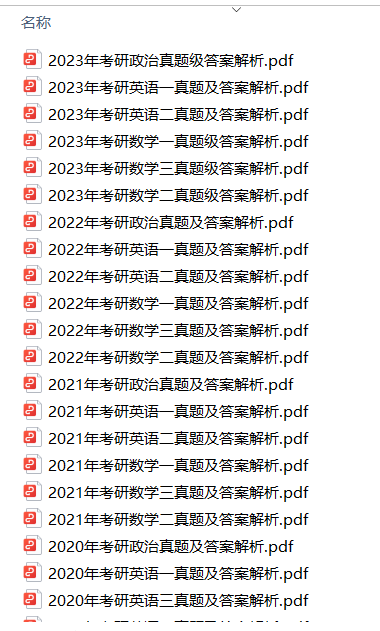 、
、
2.2013-2023年专业课考试历年真题及解析PDF版

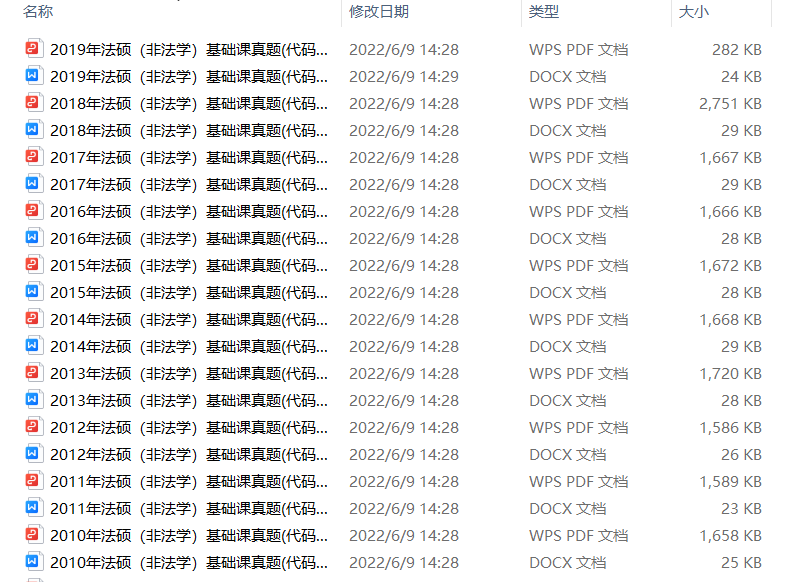
3.24考研复习备考资料大合集
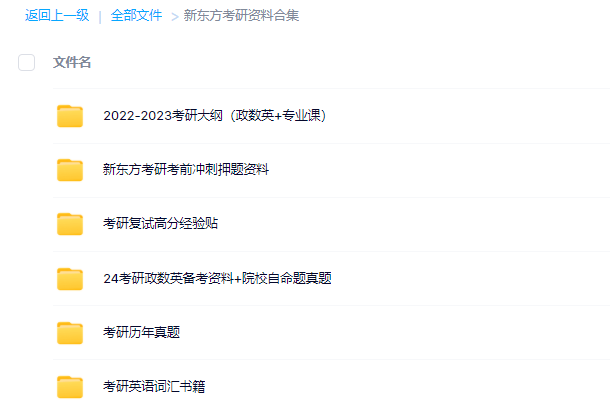
3.24考研复习备考资料:考研大纲
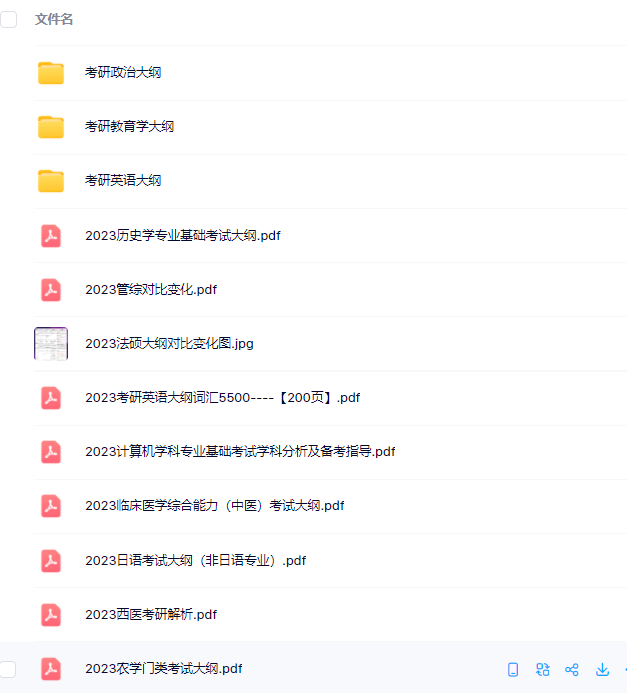
3.24考研复习备考资料:政数英备考资料+自命题真题
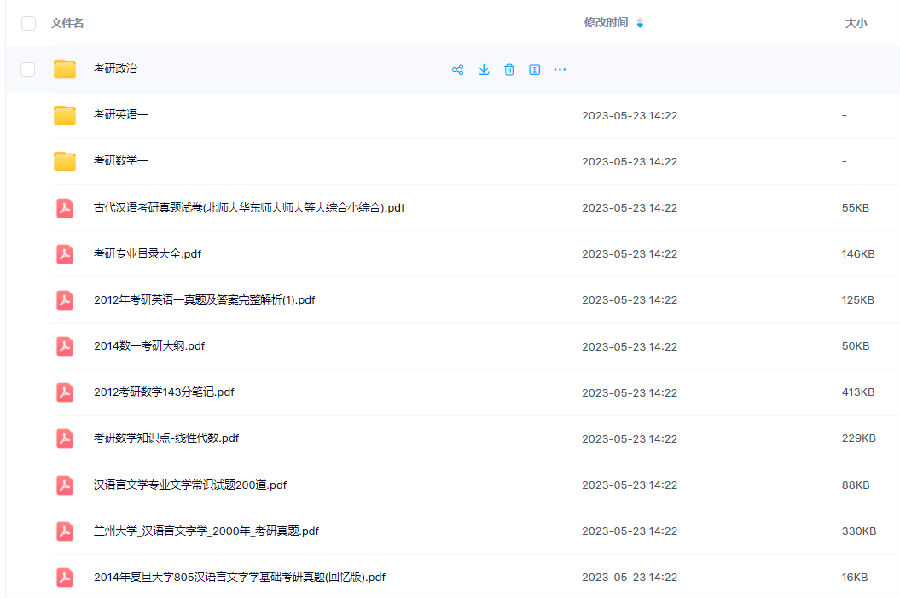
------------------
考研备考过程中,尤其是专业课部分,参考往年的考试真题,对于我们的复习有更好的帮助。北京大学考研真题资料都有哪些?小编为大家进行了汇总。
北京大学考研真题资料-公共课
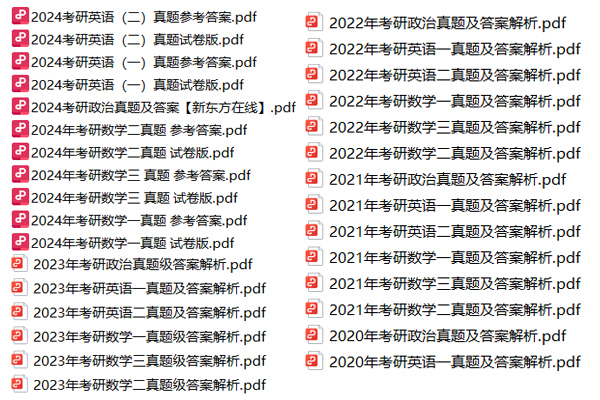
北京大学考研真题资料-专业课


以上就是关于“北京大学考研真题资料下载(历年汇总)”的整理,更多考研资料下载,请关注微信获取下载地址。
2024考研公共课必背知识点汇总
发布时间:2023-01-03扫码添加【考研班主任】
即可领取资料包
2013-2023考研历年真题汇总
发布时间:2023-01-03扫码添加【考研班主任】
即可领取资料包
考研英语大纲词汇(PDF可打印)
发布时间:2023-01-03扫码添加【考研班主任】
即可领取资料包
2024考研专业课知识点总结
发布时间:2023-01-03扫码添加【考研班主任】
即可领取资料包
2023考研政治 内部押题 PDF
发布时间:2022-11-16扫码添加【考研班主任】
即可领取资料包
徐涛:23考研预测六套卷
发布时间:2022-11-16扫码添加【考研班主任】
即可领取资料包
考研政数英冲刺资料最新整理
发布时间:2022-11-16扫码添加【考研班主任】
即可领取资料包
23考研答题卡模板打印版
发布时间:2022-11-16扫码添加【考研班主任】
即可领取资料包
2023考研大纲词汇5500PDF电子版
发布时间:2022-07-28扫码添加【考研班主任】
即可领取资料包
考研历年真题(公共课+专业课)
发布时间:2022-07-28扫码添加【考研班主任】
即可领取资料包
考研英语阅读100篇附解析及答案
发布时间:2022-01-07扫码添加【考研班主任】
即可领取资料包
新东方考研学霸笔记整理(打印版)
发布时间:2022-01-07扫码添加【考研班主任】
即可领取资料包
2001-2021年考研英语真题答案(可打印版)
发布时间:2022-01-07扫码添加【考研班主任】
即可领取资料包
考研英语词汇5500(完整版下载)
发布时间:2022-01-07扫码添加【考研班主任】
即可领取资料包
2022考研政审表模板精选10套
发布时间:2022-01-07扫码添加【考研班主任】
即可领取资料包
历年考研真题及答案 下载
发布时间:2021-12-09扫码添加【考研班主任】
即可领取资料包
考研政审表模板汇总
发布时间:2020-06-17扫码添加【考研班主任】
即可领取资料包
近5年考研英语真题汇总
发布时间:2020-06-17扫码添加【考研班主任】
即可领取资料包
考研英语大纲词汇5500
发布时间:2020-06-17扫码添加【考研班主任】
即可领取资料包
2022考研12大学科专业排名汇总
发布时间:2019-11-21扫码添加【考研班主任】
即可领取资料包
2023考研政治复习备考资料【珍藏版】
发布时间:2019-11-21扫码添加【考研班主任】
即可领取资料包
考研英语万能模板+必备词汇+范文
发布时间:2019-11-21扫码添加【考研班主任】
即可领取资料包
考研数学一、二、三历年真题整理
发布时间:2019-11-21扫码添加【考研班主任】
即可领取资料包

添加班主任领资料
添加考研班主任
免费领取考研历年真题等复习干货资料

 推荐阅读
推荐阅读
为了让考研的同学更高效地复习考研英语,新东方在线考研频道整理了“考研英语1阅读错几个后的复习计划”,考研的同学可以了解一下,希望对大家有所帮助。
为了让考研的同学更高效地复习考研英语,新东方在线考研频道整理了“考研英语二阅读篇数及题型分析”,考研的同学可以了解一下,希望对大家有所帮助。
为了让考研的同学更高效地复习考研英语,新东方在线考研频道整理了“考研英语阅读理解的总结与反思”,考研的同学可以了解一下,希望对大家有所帮助。
来源 : 网络 2025-06-13 08:02:00 关键字 : 考研英语阅读理解
为了让考研的同学更高效地复习考研英语,新东方在线考研频道整理了“提高考研英语一阅读理解的五大策略”,考研的同学可以了解一下,希望对大家有所帮助。
为了让考研的同学更高效地复习考研英语,新东方在线考研频道整理了“探索考研英语阅读文章的逻辑结构”,考研的同学可以了解一下,希望对大家有所帮助。
来源 : 网络 2025-06-12 08:03:00 关键字 : 考研英语阅读

 资料下载
资料下载
扫码添加【考研班主任】
即可领取资料包
扫码添加【考研班主任】
即可领取资料包
扫码添加【考研班主任】
即可领取资料包
扫码添加【考研班主任】
即可领取资料包
扫码添加【考研班主任】
即可领取资料包
扫码添加【考研班主任】
即可领取资料包
新东方在线考研资料合集
下载方式:微信扫码,获取网盘链接

目录:
1.2013-2023年近10年政数英真题及解析PDF版(新东方)
2.2013-2023年专业课考试历年真题及解析PDF版
3.24考研复习备考资料大合集:大纲+备考资料+词汇书+考前押题+自命题
资料介绍:
1.2013-2023年近10年政数英真题及解析PDF版(新东方)
 、
、
2.2013-2023年专业课考试历年真题及解析PDF版


3.24考研复习备考资料大合集

3.24考研复习备考资料:考研大纲

3.24考研复习备考资料:政数英备考资料+自命题真题

------------------
考研备考过程中,尤其是专业课部分,参考往年的考试真题,对于我们的复习有更好的帮助。北京大学考研真题资料都有哪些?小编为大家进行了汇总。
北京大学考研真题资料-公共课

北京大学考研真题资料-专业课


以上就是关于“北京大学考研真题资料下载(历年汇总)”的整理,更多考研资料下载,请关注微信获取下载地址。
扫码添加【考研班主任】
即可领取资料包
扫码添加【考研班主任】
即可领取资料包
扫码添加【考研班主任】
即可领取资料包
扫码添加【考研班主任】
即可领取资料包
扫码添加【考研班主任】
即可领取资料包
扫码添加【考研班主任】
即可领取资料包
扫码添加【考研班主任】
即可领取资料包
扫码添加【考研班主任】
即可领取资料包
扫码添加【考研班主任】
即可领取资料包
扫码添加【考研班主任】
即可领取资料包
扫码添加【考研班主任】
即可领取资料包
扫码添加【考研班主任】
即可领取资料包
扫码添加【考研班主任】
即可领取资料包
扫码添加【考研班主任】
即可领取资料包
扫码添加【考研班主任】
即可领取资料包
扫码添加【考研班主任】
即可领取资料包
扫码添加【考研班主任】
即可领取资料包
扫码添加【考研班主任】
即可领取资料包
扫码添加【考研班主任】
即可领取资料包
扫码添加【考研班主任】
即可领取资料包
扫码添加【考研班主任】
即可领取资料包
扫码添加【考研班主任】
即可领取资料包
扫码添加【考研班主任】
即可领取资料包

 阅读排行榜
阅读排行榜
 相关内容
相关内容